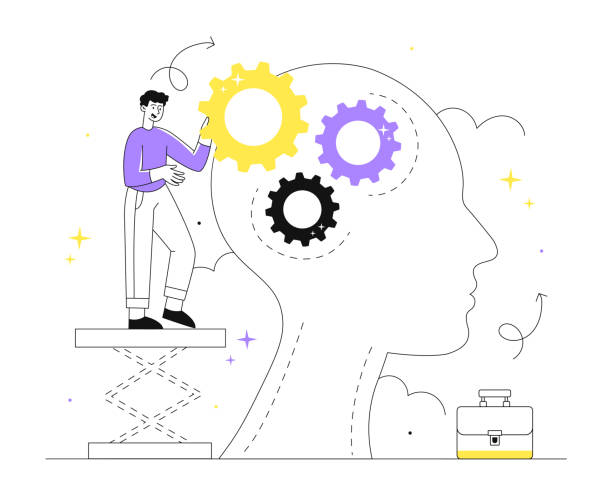Welcome to the exhilarating world of stock trading, where fortunes are made and lost in the blink of an eye. But amidst the adrenaline rush and market frenzy, a secret weapon separates the winners from the rest: mastering the art of trading mentality. Beyond mere charts and numbers lies the captivating realm of the human mind.
This article unveils the hidden power of trading psychology and how harnessing these skills through trading Psychology courses can transform your trading journey from ordinary to extraordinary. Buckle up and join us on a thrilling exploration of the mind behind the trades.
Understanding Trading Psychology
Step into the electrifying realm of stock trading, where the intricate dance of human psychology drives every market heartbeat. Beyond the numbers and equations lies a captivating journey into the depths of fear, greed, hope, and confidence – the pulsating emotions fuel traders’ every move. In this high-stakes game, mastering trading psychology isn’t just about charts and graphs; it’s about deciphering the human psyche to gain a competitive edge.
In the world of stock trading, where uncertainty is the only certainty, understanding the nuances of trading psychology rules is invaluable. Traders must recognize how emotions impact their judgment and learn to maintain discipline and composure amidst the chaos of the market. By gaining insights into their psychological tendencies, traders can make more informed decisions and improve their trading performance.
Navigating the Storm: The Rules of Trading Psychology
Welcome to the thrilling world of stock trading, where success hinges on mastering the trading psychology rules. These guiding principles are the compass in the unpredictable sea of the market, steering traders towards profitable shores with confidence and discipline.
- Emotional Discipline
Picture this: Fear and greed, the turbulent waves threatening to capsize your trading ship. But fear not! Mastering emotional discipline is your sturdy anchor, keeping you steady amidst the storm. By harnessing this discipline through trading Psychology courses, traders chart a course with unwavering resolve, steering clear of impulsive decisions and staying true to their trading plans.
- Patience and Persistence
In the fast-paced trading world, patience and persistence are your trusty companions on the journey to success. Rome wasn’t built in a day, nor was the trading mentality. Through the highs and lows, perseverance becomes your guiding light, illuminating the path to mastery with each setback overcome and challenge conquered.
- Self-awareness
Know thyself – the age-old wisdom that rings true in trading. Self-awareness is your secret weapon, unveiling the hidden biases and triggers that lurk beneath the surface. Armed with this trading mentality, traders navigate the treacherous waters of the market with clarity and precision, sidestepping common pitfalls on the road to success.

- Risk Management
In the game of trading, fortune favors the prudent. Risk management is your shield against the slings and arrows of market volatility. By prioritizing capital preservation over reckless gains, traders safeguard their investments and emerge unscathed from the tumultuous tides of uncertainty.
In the epic saga of stock trading, mastering the trading psychology rules is the hero’s journey – fraught with challenges but ultimately leading to triumph. So, gear up, brave traders, for the adventure of a lifetime awaits on the path to trading mastery!
Unlocking Your Trading Potential
These dynamic courses are not just classrooms but portals to unlock your full potential in the trading world.
- Insights, Techniques, and Practical Exercises
Through these courses, you’re not just learning theories; you’re diving deep into the rules of trading psychology. With interactive sessions and real-world examples as your compass, you’ll navigate the tumultuous seas of emotions, mastering the art of identifying and managing your inner trading demons. Say goodbye to impulsive decisions and hello to a newfound resilience that will weather any storm the market throws your way.
- Cultivating the Mindset of a Successful Trader
It’s not just about what you know; it’s about who you become. Step into the arena of practical skills and techniques, where theory meets reality. From discipline to patience to adaptability, you’ll hone the mindset of a successful trader, ready to seize opportunities and conquer challenges with unwavering confidence. Say hello to a new era of trading performance – where every decision is a step closer to greatness.

Psychology in Stock Trading
Stock trading is a thrilling arena where every move is a pulse-pounding dance of psychology and strategy. It’s like deciphering the market’s heartbeat – a dynamic symphony of sentiment, behavior, and bias that shapes the ebb and flow of stock prices.
- Emotions and Decision Making
Psychology is crucial in stock trading, as emotions influence decision-making. Fear, greed, and overconfidence can lead traders to make impulsive decisions that may not align with their long-term investment goals.
- Risk Perception and Management
Understanding how individuals perceive and manage risk is essential in stock trading. Psychological factors such as risk aversion, loss aversion, and cognitive biases can impact how traders assess and handle risks in the market.
- Behavioral Finance
Behavioral finance combines psychology and finance to study how cognitive biases and emotional factors affect financial decision-making. By analyzing investor behavior psychologically, traders can gain insights into market trends and anomalies.
- Mental Discipline and Patience
Successful stock trading requires mental discipline and patience. Emotionally intelligent traders can control impulses, stick to their trading strategies, and remain calm during market fluctuations, leading to more consistent and profitable trading outcomes.
- Psychological Support and Well-Being
Maintaining psychological well-being is vital for traders to navigate the stress and uncertainty of the stock market. Seeking support from peers, mentors, or mental health professionals can help traders cope with the psychological challenges of trading and make informed decisions.

At WiseHub Academy, there is a class for people of all skill levels, whether you’re just starting out or already know a lot. You can learn how to be good with money and become more independent by signing up for a class now.
People who want to learn about trading and how to manage their emotions, no matter how much they know already, can learn about how to manage money in the financial markets and why it’s important to learn about trading.
Go to the website wisehub.academy to learn more about WiseHub Academy and the classes you can take online.
Last Verdict
Mastering trading psychology is essential for improving your trading skills. By understanding and managing your emotions, maintaining discipline, and developing a strategic mindset, you can navigate the ups and downs of the market more effectively. Consistent practice and learning from your experiences are key to becoming a successful trader. Stay focused, stay patient, and keep refining your trading psychology—it will ultimately lead to better decision-making and improved market performance.













